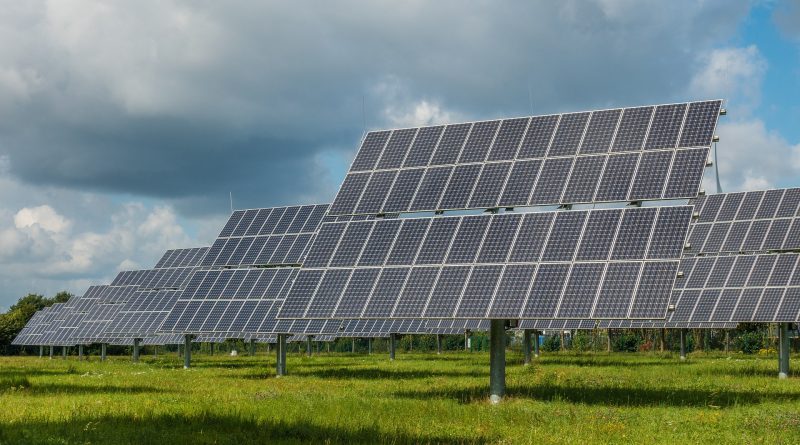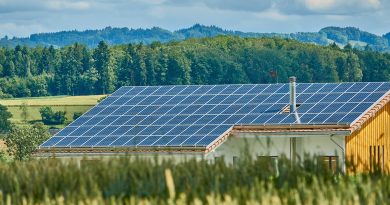Solar Panel Installation in India: Step-by-Step Guide
Installing solar panels at home in India is a smart and environmentally friendly decision. With the country’s abundant sunlight and rising electricity costs, harnessing solar energy can help reduce your monthly utility bills and contribute to a greener future. However, before you embark on this endeavor, it’s essential to understand the procedures involved in installing solar panels at home. This blog will guide you through the process step by step, ensuring that you have all the information you need to make an informed decision.
Table of Contents
- 1 Understanding Your Energy Needs
Understanding Your Energy Needs
Before you begin the installation process, it’s crucial to determine your energy requirements. Assess your average monthly electricity consumption and identify your peak energy consumption times. This information will help you determine the number and size of solar panels you will need to install to meet your energy needs.
Research and Choose a Reliable Solar Installer
To ensure a smooth and hassle-free installation, it’s vital to choose a reliable and experienced solar installer. Begin by researching different solar companies in your area. Look for customer reviews, certifications, and track records of successful installations. It’s also crucial to check if the installer provides after-sales services and warranties for the solar panels.
Site Assessment and Design
Once you have chosen a solar installer, they will conduct a site assessment to determine the feasibility of installing solar panels in your home. The installer will evaluate factors such as roof orientation, shading, structural integrity, and available space. Based on the assessment, the installer will design a system that maximizes solar energy generation and addresses any site-specific challenges.
Obtaining Necessary Permissions and Approvals
Installing solar panels in India requires obtaining several permissions and approvals. You will need to apply for a net metering connection from your electricity distribution company (DISCOM) to export any excess energy your panels generate back to the grid. Additionally, you may need to obtain approval from local authorities or housing societies, especially for rooftop installations. It’s essential to consult with your solar installer to ensure you comply with all necessary regulations and obtain the required permissions.
Purchasing Solar Panels and Equipment
Once the design is finalized and permissions are obtained, it’s time to purchase the solar panels and associated equipment. Work closely with your solar installer to select the right type of solar panels, inverters, mounting systems, and other necessary components. Consider factors such as efficiency, warranty, durability, and compatibility with your system design. Remember to compare prices and quality across different suppliers to get the best deal.
Installation and Wiring
The installation of solar panels typically involves mounting them on your rooftop or any available open space. Your solar installer will ensure the panels are securely attached using appropriate mounting systems. They will also be responsible for wiring the panels to the inverters and connecting them to your electrical panel. It’s important to have a licensed electrician involved in this process to ensure compliance with all safety standards and to avoid any potential hazards.
Testing and Commissioning
Once the installation and wiring are complete, your solar installer will conduct thorough testing to ensure that the system is functioning optimally. This includes checking the connectivity, voltage output, and efficiency of the solar panels, inverters, and rest of the equipment. Any issues or discrepancies found will be addressed before the final commissioning of the system.
Connecting to the Grid
After receiving approval from the authorized agencies, your solar installer will coordinate with your electricity DISCOM to connect your solar system to the grid. This process involves installing a bidirectional meter that measures the electricity you consume from the grid and the excess energy you export. This net metering connection allows you to benefit from the excess energy generated by your solar panels and reduces your dependence on the grid.
Maintenance and Monitoring
Once your solar panels are installed and connected to the grid, regular maintenance is essential to ensure their longevity and optimal performance. Regularly clean the panels to remove any dust or debris that may obstruct sunlight. Keep a close eye on the performance of your solar system through monitoring tools provided by your installer. Additionally, schedule periodic inspections by your solar installer to identify and address any potential issues promptly.
Conclusion
Embark on a hassle-free solar panel installation journey in India with SolarClue® as your guide in 2024. Our step-by-step guide covers essential preparations, helps you choose the right system size, and assists in finding reliable installers. We provide insights into legal requirements, simplify the installation process, and emphasize safety standards. SolarClue® keeps you informed about technology advancements, ensuring optimal performance. Addressing post-installation concerns, we guide you on maintenance and monitoring for prolonged efficiency. Learn about financial aspects, incentives, and financing options to make the process cost-effective. Join our community for shared experiences, creating a collaborative platform for learning and support on your solar journey.
Frequently Asked Questions
SolarClue® provides a step-by-step guide to assist users in the installation of solar panels in India in 2024, covering key steps and offering comprehensive insights into the process.
SolarClue® guides users in understanding the requirements and preparations needed before initiating the installation of solar panels, ensuring a smooth and efficient process in 2024.
SolarClue® educates users on the selection of the right solar panel system size and type for their specific needs, ensuring optimal performance and efficiency during installation in 2024.
SolarClue® assists users in finding and evaluating professional solar installers, ensuring transparency in pricing, and helping users choose reliable professionals for the installation process in 2024.
SolarClue® provides information regarding the permits, approvals, and regulations necessary for solar panel installation in India, ensuring users comply with legal requirements in 2024.
SolarClue® guides users in the actual installation process, including the placement and mounting of solar panels, connection to the grid, and ensuring safety standards are met in 2024.
SolarClue® provides insights into the role of technology advancements and innovations in simplifying the installation process and enhancing the overall performance of solar panels in 2024.
SolarClue® addresses concerns about maintenance and monitoring post-installation, ensuring users can maximize the lifespan and efficiency of their solar panels in 2024.
SolarClue® assists users in understanding the financial aspects of solar panel installation, including available incentives, tax credits, and financing options, making the process more cost-effective in 2024.
SolarClue® fosters a community where users share their experiences with solar panel installation in India, creating a platform for collaborative learning and support in 2024.




